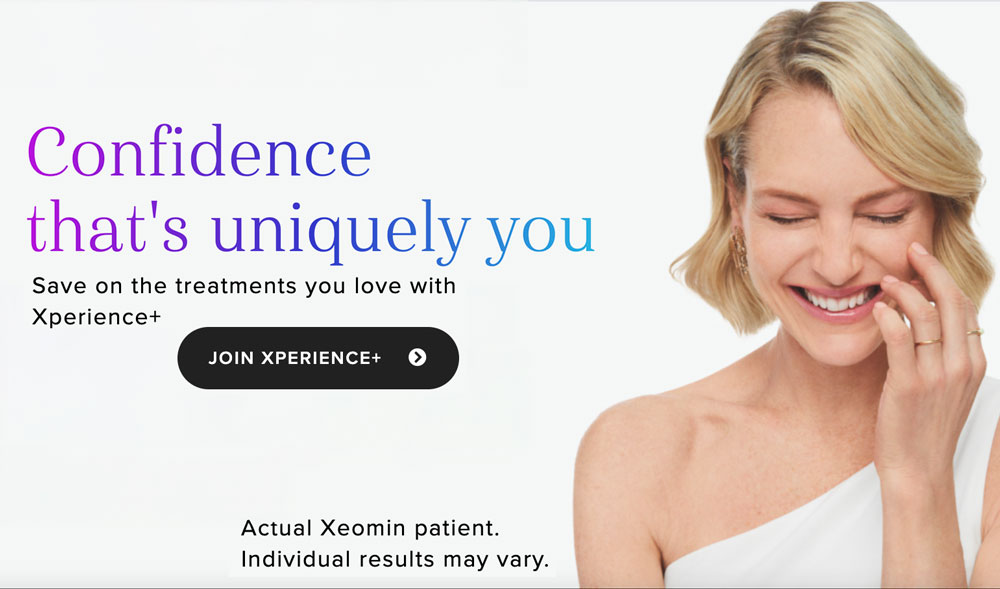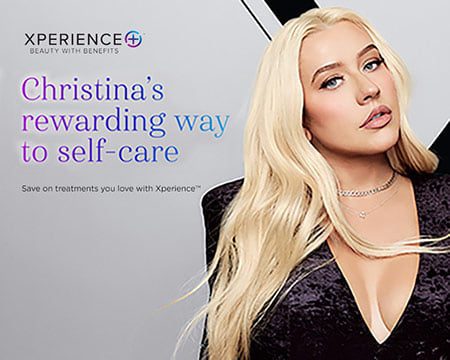Did you know that one of every three Americans reports getting sunburned every year?
Actually, there are over 30,000 sunburns every year that require emergency room-level of care. These can occur in patients of all racial and ethnic backgrounds.
Even more concerning is that one in five Americans will develop skin cancer before the age of 70.
These statistics are sobering. They have forced the skincare industry to develop high SPF sunscreen to create the maximum level of protection from UVA rays and UVB rays.
But there’s more to the sun protection factor than meets the eye. Is bigger really better when it comes to SPF?
In this article, we will walk you through everything you need to know about the importance of wearing high spf sunscreen.
What Are UV Rays?
UV rays are another term for ultraviolet radiation. This is a form of nonionizing radiation. It comes from the sun as well as several other artificial sources in modern living.
Artificial sources may include tanning beds, halogen or fluorescent lights, or mercury vapor lighting. The latter form of lighting is often found in school gyms and stadiums.
UV radiation rays are classified into three types: UVA, UVB, and UVC. The difference between these groups is their wavelength, which is measured in nanometers.
UVA rays have the highest wavelength and they are not absorbed by the ozone layer in the earth’s atmosphere. UVB rays are mostly absorbed in the ozone layer; however, some do reach the earth’s surface.
Finally, UBC is completely absorbed before reaching the earth’s surface.
What this means is that UVA and UVB radiation carry the most concern for your health.
What Is SPF?
SPF stands for sun protection factor. SPF represents the amount of UV radiation that is required to produce a sunburn on a skin surface protected with a form of sunscreen. Different sunscreens are tested to determine their SPF.
Overall, as the SPF number goes up, the overall level of protection increases. Many people have been confused by marketing strategies that have suggested that SPF relates to the amount of exposure to the sun.
It’s common for consumers to believe that certain types of high SPF sunscreen will allow for longer times out in the sun. While this may be indirectly true, it has not been tested and confirmed.
Ultimately, the SPF is not related to the amount of time of exposure to the sun, but rather to the amount of sun exposure.
Because there are great fluctuations in the amount of solar energy that reach your skin at different times of the day and in different regions, it’s impossible to estimate how soon you will need to reapply.
Ultimately, most of the highest sun exposure comes at midday. This is compared to early morning or even late morning or evening time. If you live in a lower latitude location closer to the equator, you will have greater overall solar intensity.
What Are the Different Levels of SPF?
While there is no universal level of protection standards, there are generally accepted common conventions for categories of SPF. Low protection SPF is generally under 15.
This is the least amount of protection available and should only be used in certain circumstances when you want to boost your protection temporarily. It’s important to note that there is no product with an SPF under 15 that provides broad-spectrum protection.
Broad-spectrum protection means that there is coverage for both UVA and UVB rays on the ultraviolet radiation spectrum.
Finally, sunscreen with an SPF rating has only been shown to prevent sunburn. It has not been tested to prevent skin cancer or early skin aging. However, many dermatologists suggest that these products are very beneficial for preventing these more serious diseases.
Median protection includes SPF in the range from 15 to 29. High protection increases from 30 to 49 and very high protection goes from 50 and above.
SPF 15 will block out approximately 93% of all UVB rays. At the SPF 30 level, approximately 97% of UVB rays are filtered out. And at SPF 50, there is almost a complete UVB block at 98%.
What this means for you as a consumer is that there is no sunscreen that blocks all UVB rays.
This has cost-effectiveness considerations. They may be smarter to choose to purchase a larger amount of an SPF 30 sunblock product vs. a smaller amount of an SPF 50 in terms of overall protection.
So Is High SPF Sunscreen Better?
Ultimately, as SPF increases, the amount of protection from UVB rays also increases. By this standard, technically yes. High SPF sunblock does show improved benefit over lower SPF sunblock.
But per the cost-effectiveness argument above, it may be more economical for families to purchase a lower SPF sunblock and apply it more frequently over the long term.
This means that you’ll need to consider which type of sunblock is right for you and your budget. For families with many members or young children who plan on going to the beach, a slightly lower SPF sunscreen may be a wiser choice.
However, it is very important that you do choose some form of sunscreen. As you can see, even low SPF sunscreen will offer good protection from UVB radiation.
Why Is Sunscreen Important in the First Place?
When making the decision to choose a higher SPF sunscreen vs. lower SPF sunscreen, many people wonder what the goal is that they are trying to obtain. Naturally, many of us intuitively know that protection from the sun is a good idea because we have been conditioned to believe so.
But what is the end goal that we want to obtain when choosing a product?
Sunburn
First of all, you want to reduce the risk of sunburn. Every professional in the skincare industry will continue to impress upon you the importance of protecting your skin when outside.
It doesn’t just have to be when you are out on a sunny day at the beach. Even on cloudy days, or in the winter when there is snow on the ground, you can still experience a high level of UV radiation that is harmful to your skin.
Many people are surprised to learn that skiers often develop sunburns because of the reflection of UV rays off the snow surface onto their skin.
If you are continually getting sunburned, you can develop damage to the skin that can cause premature aging or wrinkling. Even worse, the damage that occurs within the skin cells can ultimately lead to cancer down the road.
This alarming concern is what you want to avoid at all costs.
If you develop a severe sunburn that has blistered, reach out to your local dermatologist right away so they can take a look at your burn and help you get back to normal. There is a concern for scarring if you allow a sunburn to go on for too long.
However, if you can catch it early enough, you can use certain types of steroids to help prevent damage associated with sunburns.
The bottom line is that it’s better to avoid getting a sunburn in the first place by using a high enough SPF sunblock.
Aging
Repeated sun exposure when you don’t have any protection on your skin will lead to premature aging of the skin. This may manifest as discoloration, wrinkling, or a tight or leathery appearance to the skin.
Some healthcare professionals refer to this as photoaging, which can be seen in people even in their 20s and 30s.
However, if you apply daily sunscreen when you’re outside, you can prevent this issue entirely.
Skin Cancer
The largest concern when you are repeatedly exposing your skin to the sun is the long-term development of skin cancer. Your skin is a precious entity that is sensitive to genetic disruptions from UV radiation. This radiation can directly target the DNA in your skin cells and rewire them for the uncontrolled growth of cancer.
This is a common phenomenon, as 20% of Americans will develop skin cancer before they turn 70. Most dermatologists will recommend using a minimum of SPF 30 multiple times every day. For most people, this does come out to every two hours.
If you are spending all day fishing out in the Caribbean, you will want to continuously reapply a higher SPF sunblock to keep your skin at a maximal protection level.
Skin Discoloration
Skin discoloration is another problem that can be frustrating to deal with later in life. Continuously getting sunburns when you are younger can lead to sunspots or liver spots that are usually brownish or tan in color.
It’s most common to see skin discoloration in the face, hands, head, and arms. Sunspots will affect both men and women, so everyone needs to apply sunscreen periodically throughout the day when outside.
Reducing Inflammation
UV radiation exposure can also cause inflammation of the skin. For certain individuals with medical conditions like psoriasis or rosacea, inflammation can be a terrible and distressing problem.
Daily sunscreen use helps to prevent inflammation from photosensitivity. If you commonly have redness on your skin, you want to try to find a sunscreen that has gentle ingredients like zinc oxide or titanium dioxide.
It’s best to choose an option that has a manual application. Spray-on sunscreens often contain harsher formulas like alcohol that can lead to drying out your skin or causing damage. Most dermatologists have a special brand they recommend for individuals of different medical backgrounds.
What About UVA?
Most sunscreens target their protective value at UVB rays. That’s how they measure their level of protection in most circumstances. It’s challenging to find information about how a particular sunscreen protects against UVA radiation.
The best way to seek protection against UVA also is to look for a broad-spectrum sunscreen. As mentioned, UVA is ubiquitous. It is present even in sunlight that comes in through the window.
This type of UV radiation has a higher wavelength. This means that it affects the skin by accelerating the aging process. Compared to UVB radiation, UVA rays tend to be less likely to induce sunburn.
This has led the industry to focus on developing products against UVB. However, UVA can still cause serious health concerns like skin cancer by damaging DNA at the cellular level on the surface of the skin.
Broad-spectrum sunscreen offers the best means of protection against both UVB and UVA rays.
Choosing the Right High SPF Sunscreen
To accomplish all the goals above, dermatologists typically recommend SPF 30 or higher if you want to be safe and fully protected. Anything above an SPF of 30 and you will see marginal improvements in protection at a significantly increased cost.
This makes SPF 30 a good standard for everyday sunscreen when you want to be nearly fully protected, especially when engaging in high-risk activities like snow sports, swimming, or visits to equatorial regions.
Understanding High SPF Sunscreen Levels
A variety of high SPF sunscreen options can provide maximum benefit to you as a consumer. When you want to prevent inflammation, sunburns, and ultimately skin cancer, regularly applying a sunscreen of SPF 30 or above is the right decision. You can limit sun damage greatly just by applying one of these products in a few short seconds before heading out to the outdoors.
At Atlanta Face and Body, we are here to help you look and feel your best. We provide recommendations for individual high SPF sunscreen options to help you enjoy the outdoors without increasing your risk for skin cancer and other medical problems. If you’re interested in scheduling an appointment, please contact us today.











